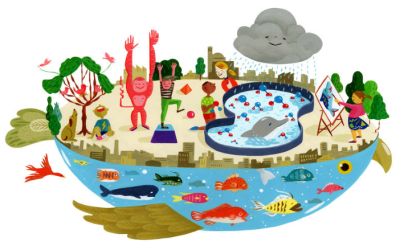There’s a strong focus on creating a passion for lifelong learning, but how is the passion created? Initially, it might seem like we can brainwash a group of kids into loving classical literature, but, unfortunately, this isn’t possible!
Often, when students don’t like a certain subject, it could be because they have only been taught in a certain way: when I was in grade school, I didn’t enjoy English class. It was repetitive, and I never enjoyed the activities we did. I always began with a novel: my class would read a novel, then we would analyze it in a five-paragraph essay. This was (and still is) boring.
It wasn’t until tenth grade that I had a teacher who went against the predecided curriculum.
She introduced books that normally weren’t on the syllabus, and she made us participate in activities that weren’t conducted in normal English classes. The classes that she taught were essentially, completely different from any other English classes at my school. In tenth grade, my teacher allowed me, and other students, to experiment with language. She assigned spoken-word poetry assignments, and she asked us to explore different forms of language. She trusted us to be able to use the freedom she gave us to create a love of language and learning. Allowing us to experiment with language and understand its reaching possibilities, she quickly changed my previous rigid opinion of English.
Repetitive exercises employed in my previous English classes lead to bored students. Learning isn’t one-size-fits-all; personalized learning is important because students learn at different paces, and they are interested in different things. In factory-style schools, forcing students to do exercises in which they are not interested in can contribute to attention problems. While the blended learning model puts more emphasis on catering to every student’s academic level, it is equally important to recognize each student’s interest.
We take English as an example. We often teach such a vast subject with a repetitive education model: we read a novel then we respond to the text with an analytical essay. However, the diversity of styles and genres deserves a better teaching approach. It is quite a shame to teach English and not indulge in activities that differ from the mundane; the world of literature and language could be enjoyed immensely if one can communicate creatively. Unlimited options exist for writing in the classroom. From carefully crafted films to spoken-word poetry, there are no limits to language, so what should we teach?
Traditional English classes prioritize critical reading and analytical writing as the two most important skills for students to attain; however, they overlook creativity.
Creative writing does not only train the students to think out of the box, but it also trains the students to use precise language to succinctly express their ideas. With spoken and written poetry, students can partake in creative forms on writing, while they decide how they would like to convey a point. Even putting a message across through a simple poem is extremely deliberate and challenging. Poets use sounds, rhythm, and shapes to create a feeling within a reader. Blunt and active, spoken-word poetry has become a favorite medium for young people. This specific type of poetry demands attention and passion, creating a ground for the minds to practice concentrating, thinking precisely as well as creatively.
While an English curriculum cannot purely consist of spoken-word poetry, it can be a useful addition to the classroom. Beyond just allowing students to express themselves, assigning creative projects allows students to become comfortable in their own writing. Creative writing projects erase the limits in the classroom, allowing students to explore in any direction they wish. Ultimately, the goal is to show students that they do not need to change to be good students, they just need to find their passion. By diversifying the curriculum, we are encouraging students to test out the English language, no matter how familiar they are (or aren’t).












